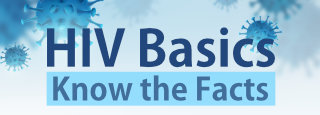HIV and Statins
Although people living with HIV have a greatly increased risk for cardiovascular issues, such as blocked arteries, heart attacks and stroke, new research has found that taking a cholesterol-lowering statin medication daily could reduce that risk by 35 percent.
What are statins?
Statins, also known as HMG-CoA reductase inhibitors, are a class of lipid-lowering medications that reduce illness and mortality in those who are at high risk of cardiovascular disease including high blood pressure, high cholesterol, heart attacks or stroke. They are the most commonly prescribed cholesterol-lowering drugs
Statins stop your liver from making cholesterol. Cholesterol (a fat) is needed by your body, for example, to make hormones. Too much cholesterol causes atherosclerosis (see below). Cholesterol is measured in mmol/L. Total cholesterol above 4 mmol/L makes atherosclerosis more likely.

Why use Statins?
HIV-positive people experience a build-up of arterial plaque and ensuing complications at a younger age than their HIV-negative peers. Yet CVD risk scores developed for the general population tend to underestimate the real risk for people with HIV. Statins reduce low-density lipoprotein (LDL) cholesterol levels and also have anti-inflammatory properties, so they could potentially address both traditional and non-traditional risk factors.
A growing body of research shows people with HIV are at greater risk for cardiovascular disease (CVD), and this risk is rising as they live longer thanks to effective antiretroviral therapy. But even those on consistent treatment can have persistent immune activation and inflammation that contribute to cardiovascular problems.
The Reprieve Study
The REPRIEVE study reflects the evolution of HIV science, and progress from focusing mostly on approaches to treat and control the virus to finding ways to improve the overall health of people living with HIV.
The REPRIEVE study reflects the evolution of HIV science, and progress from focusing mostly on approaches to treat and control the virus to finding ways to improve the overall health of people living with HIV.
The REPRIEVE study was a NZ$160 million trial began in 2015 and enrolled 7,769 volunteers who were 40 to 75 years of age, of whom more than 30% were women. REPRIEVE volunteers were all taking antiretroviral therapy, with CD4+ cell counts greater than 100 cells/mm3 of blood at enrolment, and had low-to-moderate traditional cardiovascular disease risk that would not typically be considered for statin treatment. The trial was conducted in 12 countries in Asia, Europe, North America, South America and Africa.
The primary results of the REPRIEVE Trial are available online and show people with HIV and a low to moderate traditional risk of cardiovascular disease who took a daily 4-mg dose of a statin (pitavastatin) reduced their risk of major adverse cardiovascular events by 35% relative to a placebo group.
This study offers a major step in addressing the unacceptable burden of heart disease and related conditions among individuals living with HIV and an important opportunity to develop a cardiovascular disease prevention strategy uniquely tailored for this at-risk population. Therefore all PLWHIV over forty years of age should discuss the use of statins with their doctor.
This study offers a major step in addressing the unacceptable burden of heart disease and related conditions among individuals living with HIV and an important opportunity to develop a cardiovascular disease prevention strategy uniquely tailored for this at-risk population. Therefore all PLWHIV over forty years of age should discuss the use of statins with their doctor.
Join Body Positive
By becoming a member you will be able to access all the services we offer, as well as support and updates to help you live better.
Newsletter
Want to be keep up with whats happening at Body Positive?
Subscribe to our newsletter below by submitting your e-mail address.
Subscribe to our newsletter below by submitting your e-mail address.










